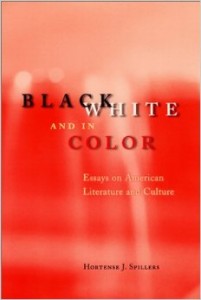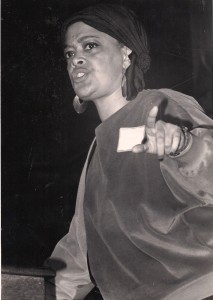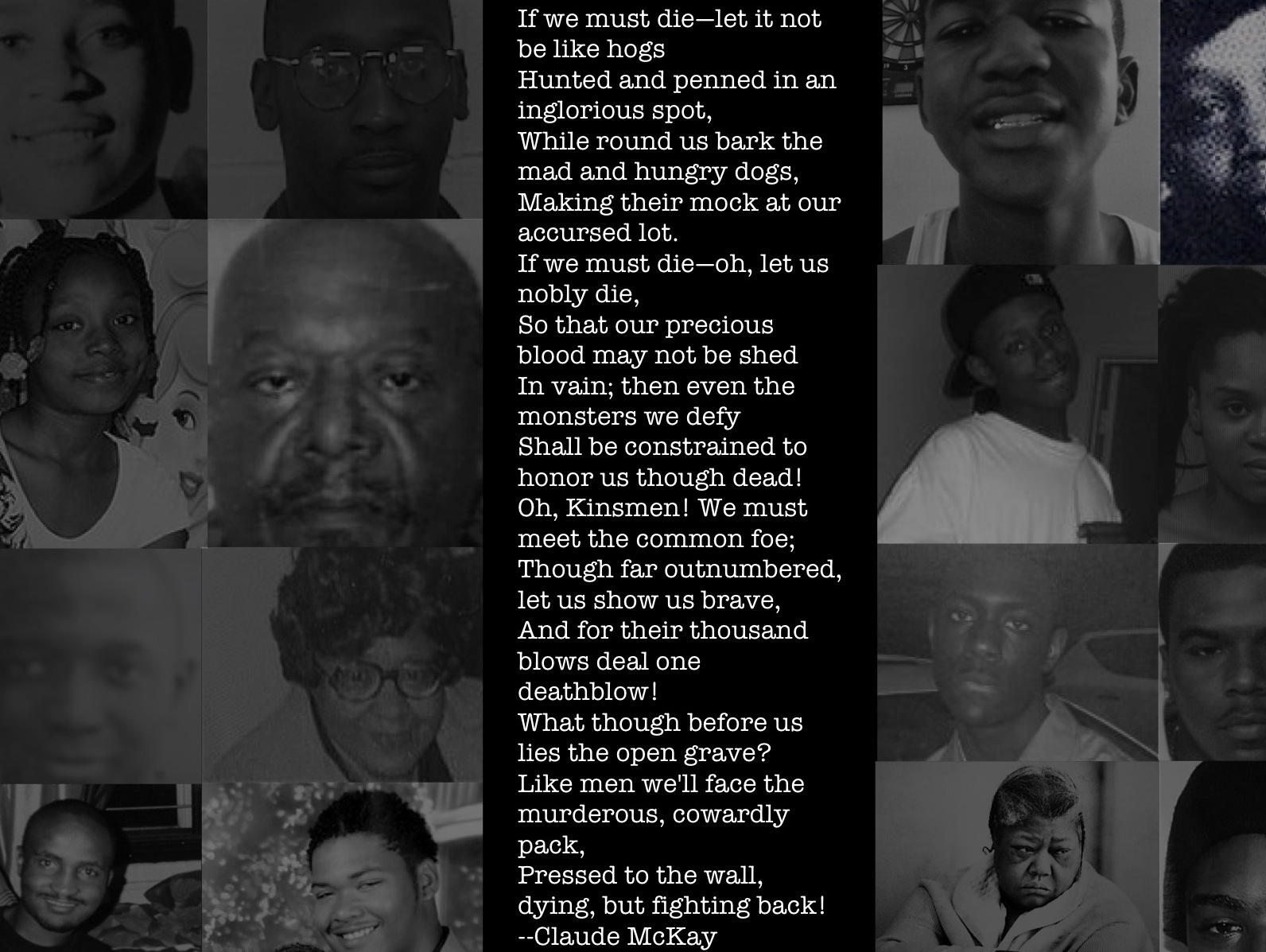Changing the Letter: TFW Celebrates Toni Cade Bambara
By Tamura Lomax on November 17, 2014 Before The Feminist Wire became a thing in history, it was an imaginative playground for Hortense Spillers and I. We had spent months in her office working through a range of essays in Black, White, and in Color: Essays on American Literature and Culture, most of which were seminal to my dissertation. We waxed and waned tirelessly on theories of race, gender, religion, representation, media and culture back then. But what we longed for was intergenerational black feminist space where we could dialogue more publicly about these and other things.
Before The Feminist Wire became a thing in history, it was an imaginative playground for Hortense Spillers and I. We had spent months in her office working through a range of essays in Black, White, and in Color: Essays on American Literature and Culture, most of which were seminal to my dissertation. We waxed and waned tirelessly on theories of race, gender, religion, representation, media and culture back then. But what we longed for was intergenerational black feminist space where we could dialogue more publicly about these and other things.
What we imagined was a space of possibility; a space of empowerment and play; a space that transcended familiar feminist boundaries. We searched for that space—a critical yet accessible space that held alienation, personhood, trauma and healing in tension, and where ingenuity, soul retrieval and collective resistance may collide. We dreamt of collective space—space that allowed us (and others) to re/tell historical and present narratives differently. We conceived of space, technological space that would enable us to “change the letter.”
“Changing the letter” is an underlying aim of The Feminist Wire. It refers to Spillers’ essay “Changing the Letter: The Yokes, the Jokes of Discourse, or, Mrs. Stowe, Mr. Reed.” It is not happenstance that “changing the letter” is also the title and theme of my dissertation, which I defended in 2011, just a few months after the official launching of The Feminist Wire. The essay argues that words (“letters”) can be manipulated (“changed”) in a variety of ways to tell a story that may be either liberative or oppressive (“yoke”). Therefore, meanings are not fixed, but are constantly influx, although sometimes appearing stabilized.

Toni Cade Bambara
Southern Rural Woman’s Network Conference, 1982
Photograph/Copyright: Monica F. Walker
The Feminist Wire, an online feminist publication ran by a diversity of scholar/activists, takes issue with the latter: the ways in which cultural meanings get stabilized over time and presented as “truth.” Yet “truth” is achieved in light of context, experiences, struggles, et al. With this in mind, The Feminist Wire is a space where writers struggle for liberative truths that will one day set us all free. This work is significantly influenced by the brilliant, soul-redeeming labors of Toni Cade Bambara. In fact, her antiracist, antisexist and anti-imperialist agenda directly informs our three-prong mission.
And sister Toni’s influences are not merely theoretical. They are lived. The Feminist Wire prides itself in modeling the scholar/activist spirit of our feminist ancestors. “Writing is one of the ways that [we] participate in transformation.” Our job is to not only “make revolution irresistible,” but to participate actively and wholeheartedly in our own individual and collective liberation. Ultimately, we want all of us to be well. To be sure, “wholeness is no trifling matter.” The road to wellness is neither lighthearted nor easy. Yet, sister Toni teaches us that the weight of wellness is much lighter than the toll of cooperating with grief.
We want to be well.
The Feminist Wire may not be a traditional wellness site, but in strategically and consistently “changing the letter,” we have no doubt decided to “stride into the future sane and whole.” To be sure, this journey is ongoing and not for the faint at heart. We find strength in sister Toni’s footprints. It is no coincidence that our structure and these pages in many ways mirror her groundbreaking anthology The Black Woman (1970). We dare not try to walk this path alone. The Feminist Wire intentionally features a range of seasoned and emerging feminist voices and original writings, from poetry, to personal narratives, to critical essays, to short stories, to news accounts, and covers a variety of topics from wellness, to violence, to religion, to sports, to pedagogy, to politics, to love, to race, to sex, to labor, to citizenship, and more.
We are so proud to honor sister Toni’s work, life and labor in these pages. We, among so many others, continue to carry her burning torch, and are working energetically and sometimes exhaustively to tell the truth about people’s lives, including our own. And this…is certainly no trifling matter…
 Tamura A. Lomax is a Visiting Assistant Professor in the Department of Gender, Sexuality and Women’s Studies at Virginia Commonwealth University. She received her Ph.D. from Vanderbilt University in Religion, where she specialized in African American Religion, Women, Gender and Sexuality Studies, African American and Diaspora Studies, and Black British and U.S. Black Cultural Studies. Her research is concerned with race, gender, representation, religion and black popular culture. She is specifically interested in the ways that linguistic and representational technologies of power construct and institutionalize ideas of race and gender and how these ideas not only establish notions of innate difference, but ultimately affect black women and girls in their everyday lives. She’s also concerned with how structural, communal and interpersonal ideas of race and gender in general and black woman/girlhood in particular get reproduced and exchanged between black religion and black popular culture, sometimes producing and igniting epistemic and/or material violence. She recently published Womanist and Black Feminist Responses to Tyler Perry’s Cultural Productions (Palgrave Macmillan, June 2014), a co-authored edited volume with Rhon S. Manigault-Bryant and Carol B. Duncan, and is finishing up her first single authored monograph, Loosing the Yoke: Black Feminist Readings on Black Religion and Black Popular Culture. She is co-founder, along with Hortense Spillers, of The Feminist Wire.
Tamura A. Lomax is a Visiting Assistant Professor in the Department of Gender, Sexuality and Women’s Studies at Virginia Commonwealth University. She received her Ph.D. from Vanderbilt University in Religion, where she specialized in African American Religion, Women, Gender and Sexuality Studies, African American and Diaspora Studies, and Black British and U.S. Black Cultural Studies. Her research is concerned with race, gender, representation, religion and black popular culture. She is specifically interested in the ways that linguistic and representational technologies of power construct and institutionalize ideas of race and gender and how these ideas not only establish notions of innate difference, but ultimately affect black women and girls in their everyday lives. She’s also concerned with how structural, communal and interpersonal ideas of race and gender in general and black woman/girlhood in particular get reproduced and exchanged between black religion and black popular culture, sometimes producing and igniting epistemic and/or material violence. She recently published Womanist and Black Feminist Responses to Tyler Perry’s Cultural Productions (Palgrave Macmillan, June 2014), a co-authored edited volume with Rhon S. Manigault-Bryant and Carol B. Duncan, and is finishing up her first single authored monograph, Loosing the Yoke: Black Feminist Readings on Black Religion and Black Popular Culture. She is co-founder, along with Hortense Spillers, of The Feminist Wire.
You may also like...
1 Comment
All Content ©2016 The Feminist Wire All Rights Reserved




Pingback: Afterword: Toni Cade Bambara's Living Legacy - The Feminist Wire | The Feminist Wire